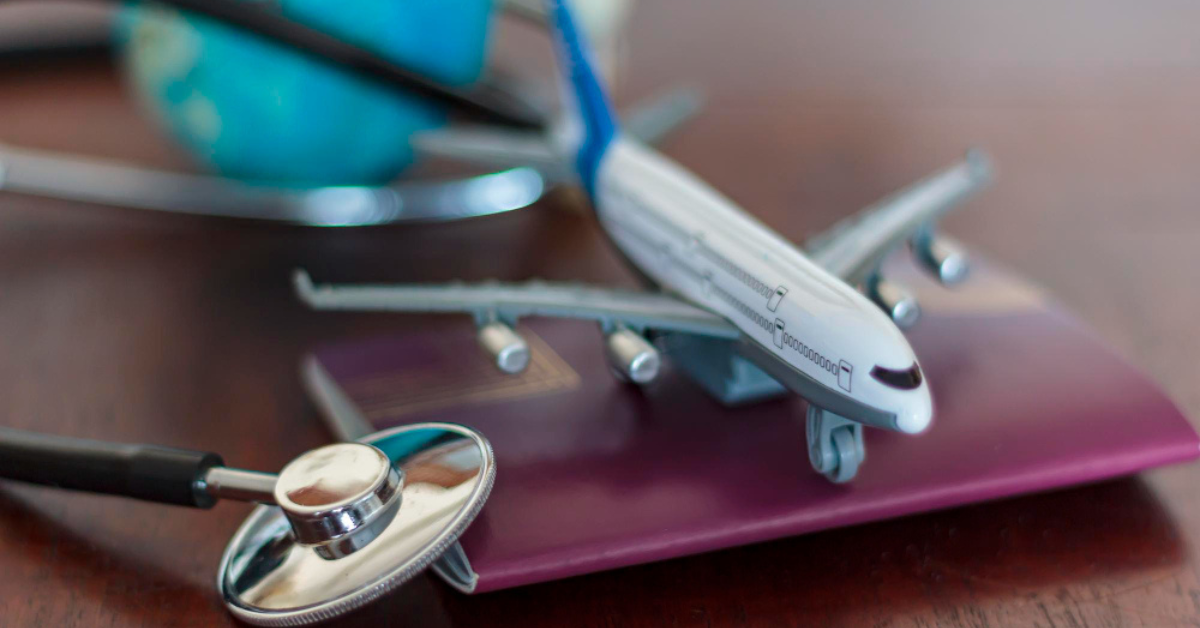The aviation industry is becoming less male-dominated, with the increasing presence of women in all roles, including pilots, air hostesses, engineers, and air traffic controllers. However, it’s important to note that women in aviation face unique medical considerations. Understanding and addressing these issues is not just a matter of inclusivity but also a responsibility towards our female employees. By providing them with the necessary attention and resources, we can ensure they remain mentally and physically fit to operate efficiently in the aviation industry.
If you are looking for FAA Aviation Medical Examiners in Florida, Dr. Auren Weinberg at Aviation Medicine can help. With more than two decades of experience in medicine and his journey as a pilot, he understands the unique health problems women face in the aviation industry. With his guidance, network, and resources, he will help you obtain your FAA Aviation Medical Certificate in Florida while minimizing the stress and difficulty of the process.
Menstrual Health
Menstrual health and hormonal changes with age can be a challenge for female aviators. They face physiological changes that impact overall body function changes. These changes are also unique for every female. For instance, some women may experience severe cramps, headaches, nausea, or hot flashes.
How do we address this issue?
To address menstrual and menopausal health among female aviators, it is essential to provide them with access to healthcare providers who understand these issues. Healthcare providers should be able to provide appropriate guidance and treatment options to help them deal with symptoms while remaining compliant with FAA rules. In particular, medications that are prescribed must be allowed by the FAA for pilot use.
Pregnancy and Maternity
Pregnancy is another challenge the women in aviation often face. The physiological and psychological changes during pregnancy, like blood pressure, fatigue, and nausea, can significantly impact women’s health.
Guidelines usually allow pregnant pilots to fly during the first and second trimesters while ensuring they receive regular medical check-ups and clearance from their healthcare providers. By the third trimester, restrictions may increase because of the increased risk of pregnancy complications.
How do we address this issue?
Maternity leave policies should be more supportive, and pilots should have access to proper healthcare while on duty. Policies should also give pilots enough time to recover from childbirth and adjust to motherhood without pressuring them to start working prematurely. New mothers should be given proper postpartum care, which should include mental health, while supporting them in returning to their job roles.
Musculoskeletal Health
Women may be at a higher risk of developing health problems related to their bones and the musculoskeletal system. This is because men and women have differences in bone densities, and females face several hormonal impacts on bone health. The aviation industry demands physical strength to handle several operations requiring stamina and prolonged sitting periods for pilots.
How do we address this issue?
To prevent the development of conditions such as osteoporosis, female aviators should exercise regularly, take adequate calcium and vitamin D, and undergo regular checkups to maintain good musculoskeletal health. Employers can support their aviators by providing resources and facilities that encourage physical fitness and the well-being of their pilots.
Resources For Women In Aviation
Addressing the concerns related to women’s health in aviation is not enough; we must ensure they have access to the necessary resources and support systems to aid them when required. Various organizations, initiatives, and programs are dedicated to helping women in aviation, providing them with the resources needed to operate efficiently.
For instance, Women in Aviation International (WAI) provides a wealth of resources to female aviators, including scholarships, mentorship programs, networking opportunities, and more. WAI annual conference allows women from the aviation industry to come together and share their knowledge and experiences, which is a huge support system.
In the same way, the International Society of Women Airline Pilots (ISWAP) and the Ninety-Nines are international organizations dedicated to the growth and empowerment of women in aviation. They offer professional development, advocacy, and support. These organizations are great resources for helping women navigate their unique health challenges in the aviation industry, allowing them to stand strong and continue their duties comfortably.
For further guidance on available resources, contact Dr. Auren Weinberg at (727) 648-2402 or aweinberg@medavex.org Get Your FAA Aviation Medical Certificate Today!

